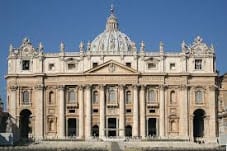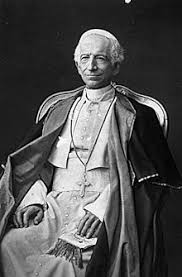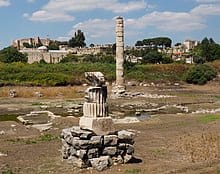Sacred Tradition is, and always has been, a great obstacle for Protestants to overcome. There is an utter incongruity between the Christianity of history and Protestantism that requires much mental gymnastics to avoid. St. John Henry Newman put it another way: “if ever there were a safe truth, it is this…To be deep in history is to cease to be a Protestant.” The early Protestants, because they were drawn from the ranks of Catholics, knew this so that their theological acrobatics required them to discredit, or at least mitigate the role of the Catholic Church during the first fifteen centuries of Christianity, while still maintaining the revealed truth that the Church could not totally fail. From this they developed the idea of the “Invisible Church” as the true Church. This “spiritual” society was to be comprised of all the just men and women. It would only be made visible to the extent that the various religious communities more or less perfectly realize the ideal proposed by Christ. All of this leads to the notion that one Church is as good as another and only the “heart” of the individual believer really determines whether they are a part of the true, invisible Church.
We must admit at the outset that this ecclesiastical sleight of hand by the original Protestant revolutionaries was deliberate. But for Protestants today, it is simply an unquestioned maxim upon which the entire façade of Protestantism rests. This is why Newman thought, especially from his own personal experience, that studying the Church Fathers would lead one to the conclusion that the Protestant Fathers invented a new Christianity that was, at least in theory, based on the Bible alone. But prior to this study it is often necessary to raze the foundation upon which the entire building of Protestantism rests—the invisible Church.
That Christ intended to form a single Church is clearly testified to in Sacred Scripture. The one mustard seed, the one field, the one Bride of Christ and telling it to the Church all put this unity on display. He prayed to the Father before making His sacrifice that all believers would be one. Of these facts both Catholics and Protestants can agree. But in order for this unity to real, there must be certain characteristics among the body of believers.
For any society to exist there must be a true union of minds and wills between members. This unity in intellect means that the same doctrines are known and professed by each of the members. Likewise, the union of wills means, not just that they do the same things, but that there is submission to a common authority. Because man is not just a mind and will however, there must also be a third characteristic. This third characteristic is a set of external signs that symbolizes this internal unity.
Unity in Visible Government
In merely human societies, this unity is usually realized imperfectly. Nevertheless, there are some core set of beliefs, recognition of authority and visible signs that mark members of a society as belonging to that society. In the supernatural society that is the Church, these are necessarily realized perfectly. No mere core set of beliefs will do because of the Divine promise of being given “all truth” (Jn 16:13). There are no “core beliefs” in Christianity because the Truth is one. This unity of doctrine likewise means a unity of acceptance and a unity of government.
The Truth must be guarded and protected so as to avoid corruption. Protestantism bears this aspect out. Because there is no unity of belief, there can be no unity in government and thus we have thousands of “denominations.” Protestantism, rather than leading to the unity willed by Christ, has led in the opposite direction. This government must not only be one, but it must be visible. The Government of the Church, because of the nature of man and the nature by which men are cooperators, must be something visible and external.
As Leo XIII said in Satis Cognitum:
The Apostles received a mission to teach by visible and audible signs, and they discharged their mission only by words and acts which certainly appealed to the senses. So that their voices falling upon the ears of those who heard them begot faith in souls-“Faith cometh by hearing, and hearing by the words of Christ” (Rom. x., 17). And faith itself – that is assent given to the first and supreme truth – though residing essentially in the intellect, must be manifested by outward profession-“For with the heart we believe unto justice, but with the mouth confession is made unto salvation” (Rom. x., 10). In the same way in man, nothing is more internal than heavenly grace which begets sanctity, but the ordinary and chief means of obtaining grace are external: that is to say, the sacraments which are administered by men specially chosen for that purpose, by means of certain ordinances.
SG, 3

Unity in Visible Worship
But this visibility in government is not the only aspect by which the Church must be visible. Since it is a religious society, there must be a unity in worship. It is this unity of worship that signals to the world that the Church is one.
Man, on his own, is incapable of worshipping God in a fitting manner. For that, God must reveal the form of worship that is pleasing to Him. Throughout salvation history, God always makes a covenant with Israel that includes regulation of a concrete form of worship that God seeks. The New Covenant is no different in that regard. The worship that God seeks, the only worship that is pleasing to Him is the Mass. This is exactly the point that St. Paul makes to the Corinthians. First, he reminds them that the liturgy is their source of unity: “The cup of blessing that we bless, is it not a participation in the blood of Christ? The bread that we break, is it not a participation in the body of Christ? Because the loaf of bread is one, we, though many, are one body, for we all partake of the one loaf” (1Cor 10:16-17). Then he tells them that the form of the liturgy, including the manner in which they participate, is regulated by Christ Himself: “In the same way also the cup, after supper, saying, ‘This cup is the new covenant in my blood. Do this, as often as you drink it, in remembrance of me.’ For as often as you eat this bread and drink the cup, you proclaim the death of the Lord until he comes” (1Cor 11:25-26).
Practically speaking then there can be no true Christian Unity without unity of Faith, government and worship. True Ecumenism then must always have as its purpose conversion because until we have unity in the True Faith, governed by the True Church and worshipping with the True Sacrifice, we remain a divided society.









